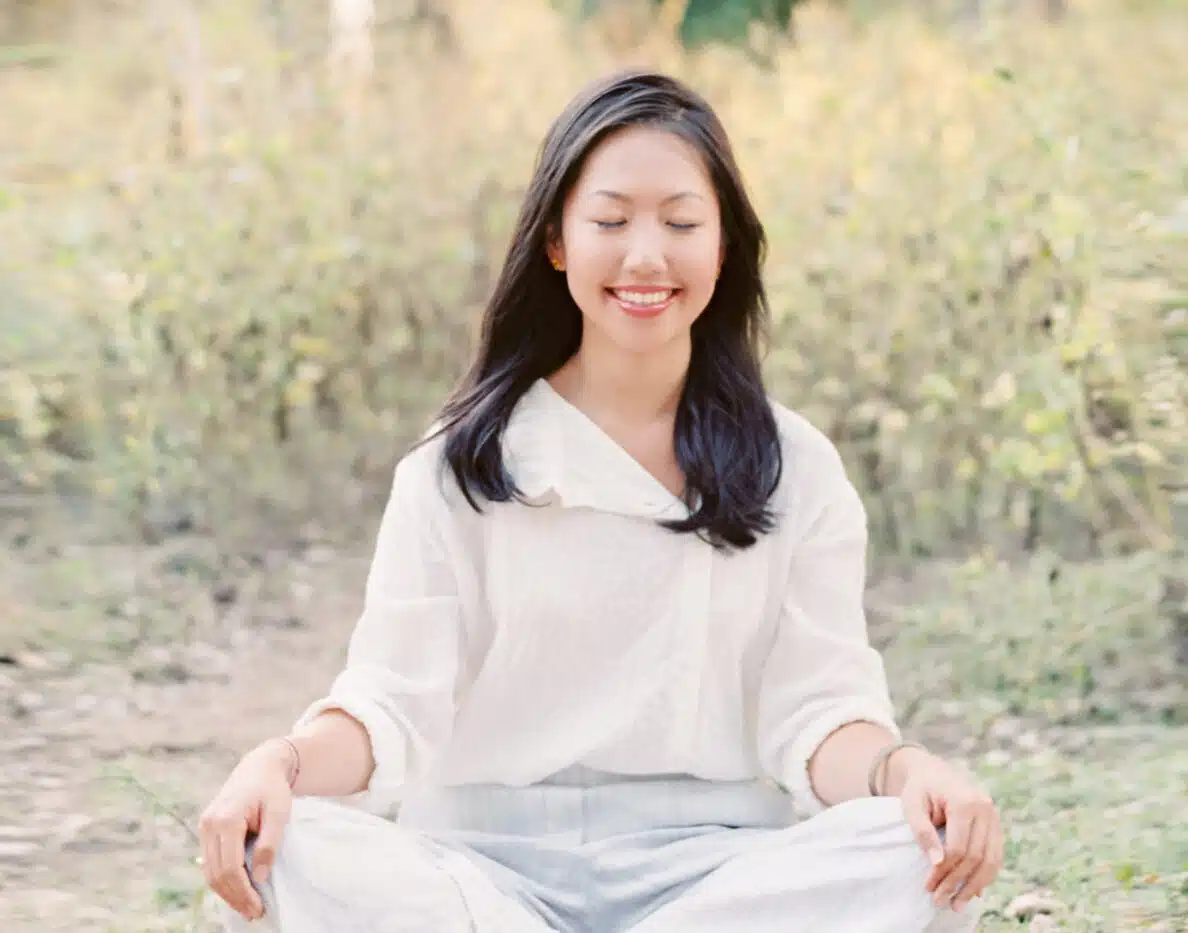Meditation for Relaxation 101
When our days tend to be stressful with work, social, and home demands, we often want to find a way to recharge and unwind. Different people find different activities relaxing, such as reading a book, taking a bath, or taking a walk in nature.
There is a difference between relaxation, rest, and sleep though, especially when it comes to meditation. Though all kinds of meditation can be relaxing, not all are deeply restful.
In this article, we’ll define the types of rest and how Vedic Meditation does more than just relax your mind and body and reduce stress.

Defining relaxation, rest, and sleep
Relaxation is the way we change our mental and emotional state. Though it can help us slow down or stop feelings of anxiety, anger, or stress, it cannot remove stressful memories or triggers from our physiology and psyche.
According to the psychology group The Psych Professionals, relaxation is defined as follows:
“Relaxation is the act of relaxing, and can be defined as the release of tension and the refreshment of the mind or body. Relaxation differs from rest, in that relaxation is our mind’s way of rejuvenating, and can assist in reducing the arousal we experience from stress and/or anxiety. This means that while rest occurs while we are asleep, relaxation occurs while we are awake, and involves us engaging in activities that we enjoy.”
While relaxation can be enjoyable and important to reset our physical and mental state, rest has a different function and effect. The Psych Professionals article goes on to define rest as:
“An instance of resting, where work or movement is ceased in order to sleep, or recover strength. We rest when we are tired and when we go to sleep at night. Sleep and rest refresh your mind and repair your body.”
Rest can include dozing, napping, or meditating.

Start your Meditation Journey Today
ATTEND A FREE INTRO TALK
Deep rest, or hypo-metabolic states
The part of rest and sleep that allow the body and brain to repair is called a ‘hypo-metabolic state.’ In this state, the metabolism lowers. The body uses less energy and can then direct energy toward repair.
There is a way to rest the body that provides more rejuvenation in some ways than sleep does. The best meditation for relaxation involves bringing the body into a hypo-metabolic state that is similar to sleep but with a waking conscious mind. One study by the American Physiological Society revealed that:
“Meditation… represents a special case of the hypometabolic response. Subjects who are asked to sit quietly in an environment of reduced illumination while attending exclusively to their breathing cycles begin to show immediate changes in their physiology similar to other hypometabolic conditions.”
The most characteristic elements include decreased oxygen consumption and carbon dioxide elimination and decreased respiratory rate and minute ventilation with no change in respiratory quotient. But the most significant difference is that the body appears to move into a state analogous to many, but not all, aspects of deep sleep, while consciousness remains responsive and alert.”
Some forms of meditation for relaxation rely on creating an enjoyable experience for the mind to distract from stressful thoughts or emotions. Since these kinds of meditation stimulate the mind to change the meditator’s focus, they do not provide rest. A form that provides relaxing music for meditation would fall in the category of relaxing but not necessarily restful to the body.
The mantra for creating deep rest
Vedic Meditation provides a uniquely deep level of rest to the body because of the way the mantra works. The meditation is effortless and does not require any concentration or stimulation.
The meditator repeats a meaningless sound, their Bija mantra, easily alongside thoughts that appear. Eventually, the mantra guides the mind beyond thought into a state of silence or transcendence. This process provides the body with deeper rest than is even available in sleep.
Vedic Meditation for relaxation and rest
Among the many kinds of meditations for relaxation you can try, Vedic Meditation is one of the few that can actually release stress memories from the physiology. This results in better and deeper sleep, a lower stress buildup, and greater resilience to stress in daily life.
When your body is coping with less stress at any given time (or has a greater bank of adaptation energy), you can stay in a relaxed state even when stressful things are happening. You’ll be able to enjoy relaxing activities more, and you may even find activities that were once boring to become relaxing instead.

Why you need deep rest more than relaxation
The root cause of dependence on relaxation– or the need to take a break from your regular demands– is stress. Stress builds up in our systems and colors our reactions, emotions, thoughts, and physical wellness. When we can release stress from our bodies twice a day through meditation, we are steadily removing the stress buildup that causes anxiety, worry, unhappiness, and even physical ailments.
Practicing Vedic Meditation for relaxing each morning and afternoon will provide more than a refreshed, rejuvenated state change. Vedic Meditators have reported getting better quality sleep, feeling happier and more relaxed in their day-to-day, and even feeling better able to focus or be creative.
Rather than using relaxation techniques to simply distract ourselves from our stressors, we’re actually releasing the source of those stressors from our body through a Vedic Meditation practice.
Learn to meditate to relax
To receive your own mantra and start a meditation practice that both relaxes you and provides rest that is deeper than sleep, register for the Learn to Meditate course. You’ll learn how Vedic Meditation affects the mind and body, and why releasing stress and experiencing transcendence ultimately leads to the slow and steady expansion of one’s consciousness.
To learn more, join me for one of my weekly free Introductory Talks.






